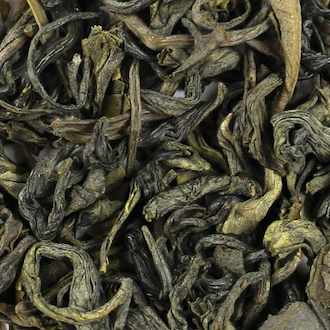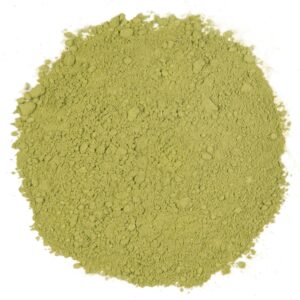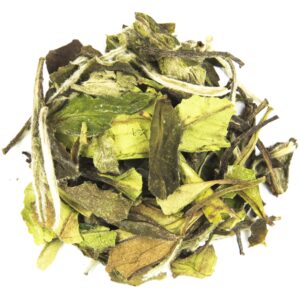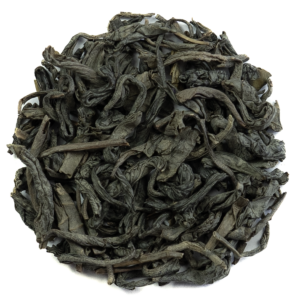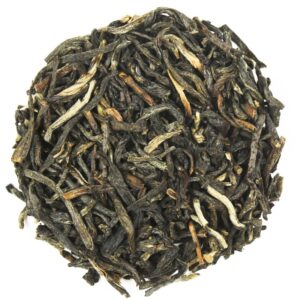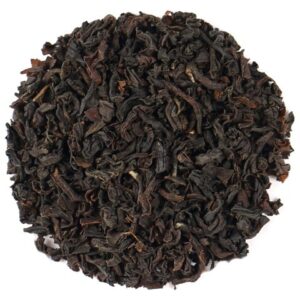Organic Tea
Organic Tea is for those looking to do their bit for mother nature. It enables you to protect the environment and, as a result, help prevent the damaging effects of climate change.
We are one of the best Organic Tea UK supplier around. You can learn more about what makes a Loose Leaf Tea “organic” below or, simply, browse our vast selection.
Showing 1–12 of 21 results
-
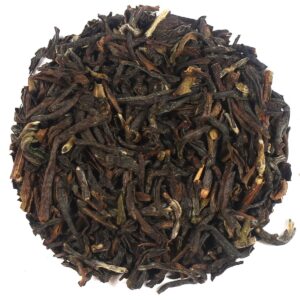
Darjeeling Badamtam FTGFOP1 Organic Tea
From £2.99— or subscribe and save 10%Select options This product has multiple variants. The options may be chosen on the product page -
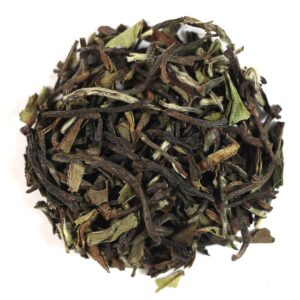
Nepal Himshikhar Black Tea Organic
From £4.05— or subscribe and save 10%Select options This product has multiple variants. The options may be chosen on the product page -
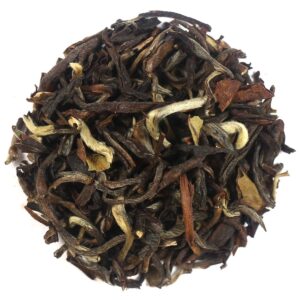
Organic Darjeeling Tea Barnesbeg FTGFOP1
From £3.17— or subscribe and save 10%Select options This product has multiple variants. The options may be chosen on the product page -
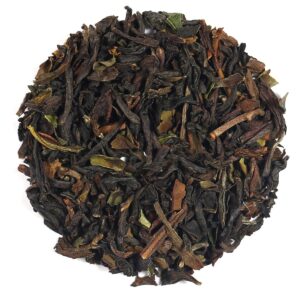
Organic Darjeeling Tea FTGFOP1
From £2.77— or subscribe and save 10%Select options This product has multiple variants. The options may be chosen on the product page -
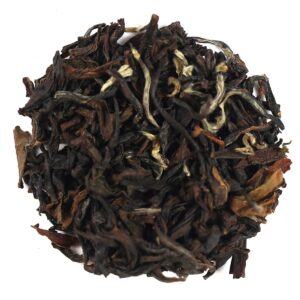
Organic Darjeeling Tea Risheehat
From £4.78— or subscribe and save 10%Select options This product has multiple variants. The options may be chosen on the product page -
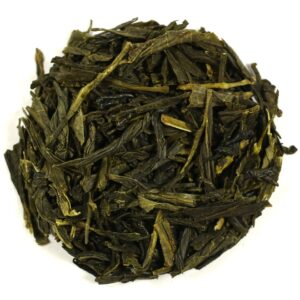
Organic Green Tea
From £3.06— or subscribe and save 10%Select options This product has multiple variants. The options may be chosen on the product page -
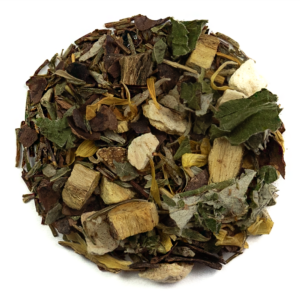
Organic Magic Tea
From £2.99— or subscribe and save 10%Select options This product has multiple variants. The options may be chosen on the product page
What is Organic Tea?
The term “Organic” refers to the way producers grow and process Tea without the use of pesticides or insecticides, bio-engineered genes and petroleum/sewage-based fertilisers.
All types of Organic Tea – be it Organic Green Tea, Organic Black Tea or Organic Rooibos Tea – must be certified by the regulatory body within the producing country. They then receive certification again upon arriving in the EU or UK.
Despite recent changes to how Britain operates with the EU, much of its Tea supply still comes from the continent. The EU regulations on organic products are robust and uniform across Europe.
Each container is checked and sampled. Should a Tea fail inspection, the container is resealed and returned to the country of origin. This means that when you buy Organic Tea, it has, unquestionably, passed the tests.
Is Non Organic Bad for You?
But what do these regulations mean for Non Organic Tea? Are Non Organic safe, or should you be worried? It depends on your perspective.
The reality is that the current commercial production methods in place are far from sustainable. This is because the use of pesticides and fertilisers slowly, but surely, depletes land that should’ve been arable for much longer. And, sadly, that’s not all.
Traces of nitrogen contained in these human-made products are often absorbed into the soil and plants. The remaining residue then runs off into waterways to create massive “algal blooms.”
This overgrown, nitrate-fed alga starves the bodies of water of vital oxygen, suffocating fish and other aquatic life. Fundamentally, Non Organic Tea destroys habitats, contaminates soil and contributes to climate change.
Benefits of Loose Leaf Organic Tea
Avoiding synthetic fertilisers while making Organic Loose Leaf Tea protects the environmental state of land in and around Tea Estates. It promotes biodiversity, protects local wildlife and allows for a sustainable and progressive future in Tea-growing.
And the good news is that change is happening. Countless conventional Tea gardens have already switched to Organic Leaf Tea production.
Also noteworthy is that widespread cultivation of Organic Loose Tea ensures the welfare of Tea workers, who’re no longer subjected to harmful chemicals.
You, too, will experience the benefits through the Tea’s wealth in vitamins, minerals and other antioxidants. Frequent consumption might even reduce the risk of developing a multitude of chronic conditions from heart disease to type-2 diabetes.
Does Organic Tea Have Fluoride and Caffeine?
We’ve established so far that Organic Tea – from Organic Matcha Tea to Organic Jasmine Green Tea – is void of numerous human-made substances. Meanwhile, it does contain naturally occurring constituents such as Vitamin C and Calcium.
That’s not all, either, as there is typically a significant amount of fluoride within the leaves. Fluoride in Organic Tea can improve oral health, so it’s a good thing.
Does Organic Tea contain caffeine as well? This stimulating chemical compound famously provides an energy boost upon consumption. It exists in around sixty plants, including Camellia sinensis (Tea) and Coffea (Coffee).
But what if you want to cut down? Your best option is an Organic Herbal Tea, which is almost always 100% caffeine-free. The exception to the rule is Organic Yerba Mate Matcha Tea.

 Loose Leaf Tea
Loose Leaf Tea Pyramids
Pyramids Tea Bags
Tea Bags Africa
Africa Assam
Assam Ceylon
Ceylon Chinese
Chinese Darjeeling
Darjeeling European
European Indian
Indian Japan
Japan Nepal
Nepal South East Asia
South East Asia Ayurveda Tea
Ayurveda Tea Black Tea
Black Tea Chai Tea
Chai Tea Flowering Tea
Flowering Tea Fruit Tisanes
Fruit Tisanes Green Tea
Green Tea Herbal Tea
Herbal Tea Matcha Tea
Matcha Tea Oolong Tea
Oolong Tea Organic Tea
Organic Tea Pu erh Tea
Pu erh Tea Rooibos Tea
Rooibos Tea White Tea
White Tea Asian Coffee
Asian Coffee Caribbean Coffee
Caribbean Coffee Central American Coffee
Central American Coffee South American Coffee
South American Coffee Coffee Blends
Coffee Blends Decaffeinated Coffee
Decaffeinated Coffee Espresso Coffee
Espresso Coffee Ethically Sourced Coffee
Ethically Sourced Coffee Flavoured Coffee
Flavoured Coffee Organic Coffee
Organic Coffee Single Origin Coffee
Single Origin Coffee Chocolate 1
Chocolate 1 Chocolate 2
Chocolate 2 Chocolate 3
Chocolate 3 Chocolate 4
Chocolate 4 Chocolate 5
Chocolate 5 Chocolate 6
Chocolate 6 Chocolate 7
Chocolate 7 Chocolate 8
Chocolate 8 Chocolate 9
Chocolate 9 Loose Tea Filters
Loose Tea Filters Tea Accessories
Tea Accessories Tea Bricks
Tea Bricks Tea Caddies
Tea Caddies Tea Caddy Spoons
Tea Caddy Spoons Tea Gift Ideas
Tea Gift Ideas Tea Infusers
Tea Infusers Tea Strainers
Tea Strainers